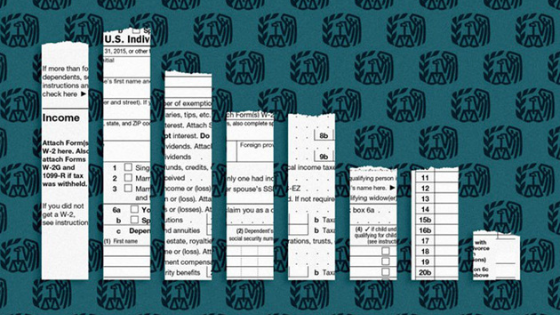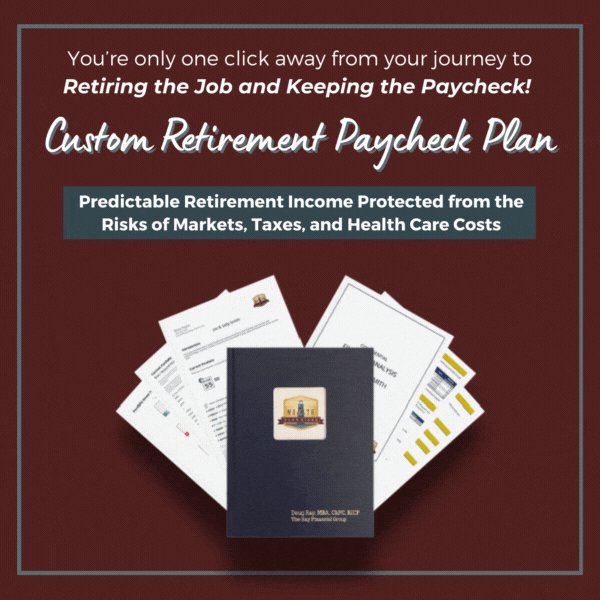 See if you can spot the flaw in this couple’s plan:
See if you can spot the flaw in this couple’s plan:
A husband and wife are retiring next month at age 62, with an equal amount saved in retirement and non-retirement accounts (let’s call it $500,000 each).
Like most, over their lifetimes they have emphasized higher-growth assets in their retirement accounts (IRAs, 401(k)s, etc.), which are invested almost entirely in stocks. By contrast, their non-retirement accounts are far more conservative, since they were more likely to tap those over the years for expenses like college, a home upgrade, or an emergency. Those accounts are more bond-heavy, with a particular emphasis on tax-free municipal bonds.
Between the two sleeves of their portfolio, their aggregate asset allocation is fairly well-balanced going into retirement.
The Problem
This couple has followed well-established financial planning practices up to this point. However, there is one major tax-planning principle that changes in retirement that they have overlooked, and if they continue down their current path, they will pay more taxes than necessary.
Entering retirement, rather than emphasizing stocks in your retirement accounts, consider overweighting them in your non-retirement accounts instead. To keep your overall allocation intact, simply do the opposite with bonds.
There are several reasons why this is a superior approach in retirement:
- Favorable tax treatment for stocks. In taxable accounts, qualified dividends and long-term capital gains are taxed at lower rates than ordinary income. However, you lose this favorable tax treatment when holding equities in your retirement accounts.
- Higher bond yields. Holding bonds in an IRA eliminates the need for lower-yielding municipal bonds. For an equivalent amount of risk, you can purchase higher-yielding taxable bonds.
- Minimization of required minimum distributions (RMDs). Emphasizing fixed income in your IRAs slows down the growth of that sleeve of the portfolio, keeping RMDs in check.
- Estate planning. From the perspective of your heirs, it’s far better for your non-retirement accounts to grow faster than your IRAs. Non-retirement accounts receive a step-up in basis, so the beneficiary of an appreciated stock account can immediately deploy the asset as desired without triggering taxes. By contrast, IRA beneficiaries pay ordinary income tax on any withdrawals, and must navigate separate RMD rules if they stretch distributions over their life expectancy.
- Income tax control. Most importantly, directing non-retirement assets into tax-efficient equity investments like ETFs or individual positions can be the cornerstone of a comprehensive tax mitigation plan since you can control the timing and amount of realized gains.
Several major retirement expenses are affected by your level of reportable income:
- Long-term capital gains tax rate
- Tax rate on qualified dividends
- Medicare Part B premiums
- Taxation of Social Security benefits
- Health insurance premiums prior to age.
Reducing taxes at every opportunity can minimize your portfolio withdrawal rate in early retirement, which is a key factor in determining whether your money can last over your lifetime.
Taking Action
The general principles here apply in most cases in retirement, even if you are in a higher tax bracket. No matter your income, long-term capital gains and qualified dividends are always taxable at a lower rate than ordinary income.
>CLICK HERE TO DOWNLOAD OUR FREE GUIDE: Common Tax Errors to Avoid
One exception is if you employ high-turnover stock strategies or mutual funds. Those are better suited for your IRAs in order to avoid triggering short-term capital gains taxes.
Minimizing income taxes is a powerful way to potentially add years to your portfolio, with no need to outguess the markets. If your portfolio is upside-down from a tax perspective, turning it around it could significantly strengthen your retirement.
Our Custom Retirement Paycheck Plan shows how to protect your retirement from the risks of unexpected market swings, tax changes, and health care expenses using a mathematically tested strategy to create lifetime income allowing you to stop worrying about outliving your money and get on with enjoying the rest of your life.
Let us show you in black and white a custom retirement income plan that is comprehensive, individualized and based on strategies that balance growth with downside protection. Get your Custom Retirement Paycheck Plan now!
Give us a call at our Charlotte office at (704) 248-8549, or our Clemmons office at (336) 391-3409. Or, click here to request a no-cost, no-obligation meeting.
[SOURCES & ADDITIONAL DISCLOSURES]
Copyright © 2021 The Kiplinger Washington Editors. All rights reserved. Distributed by Financial Media Exchange.







